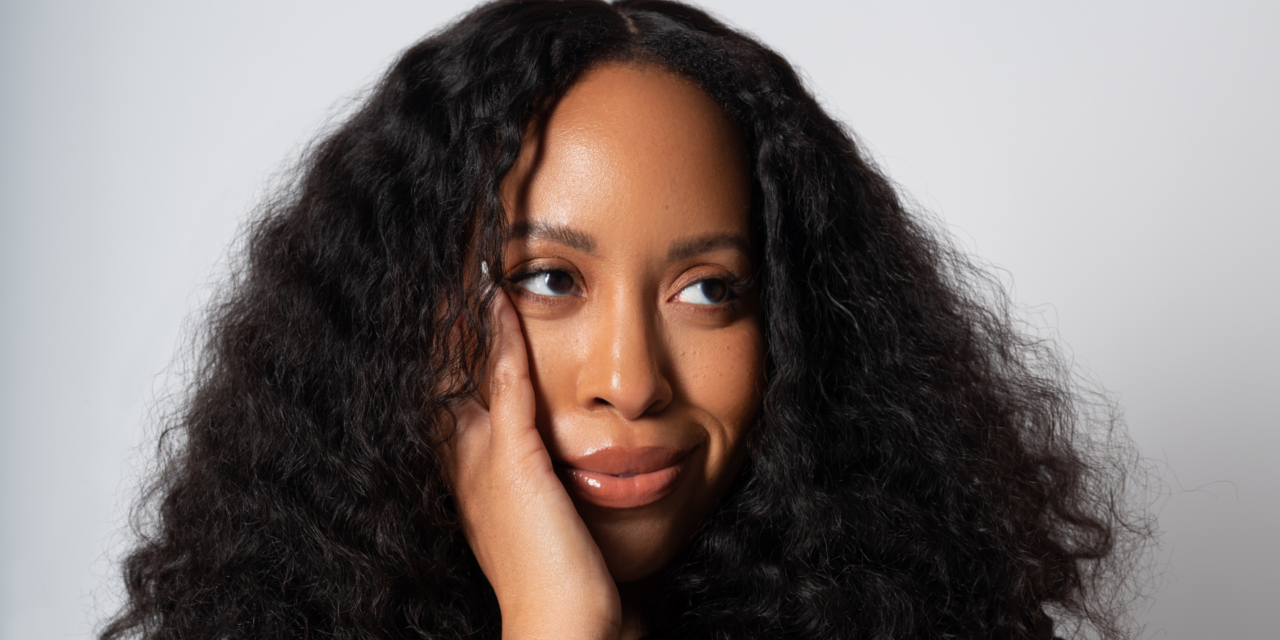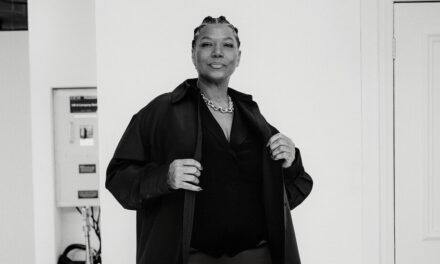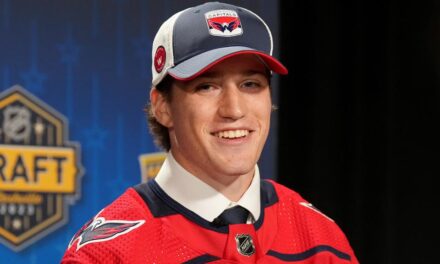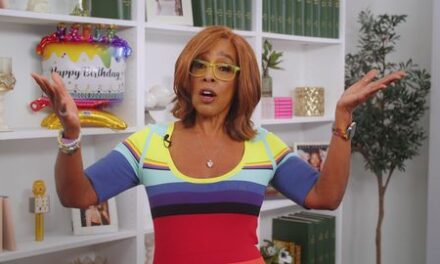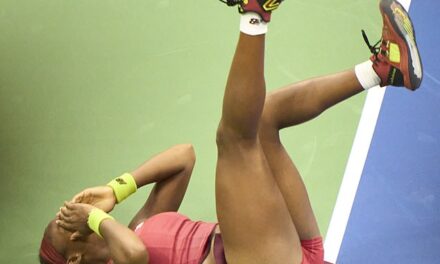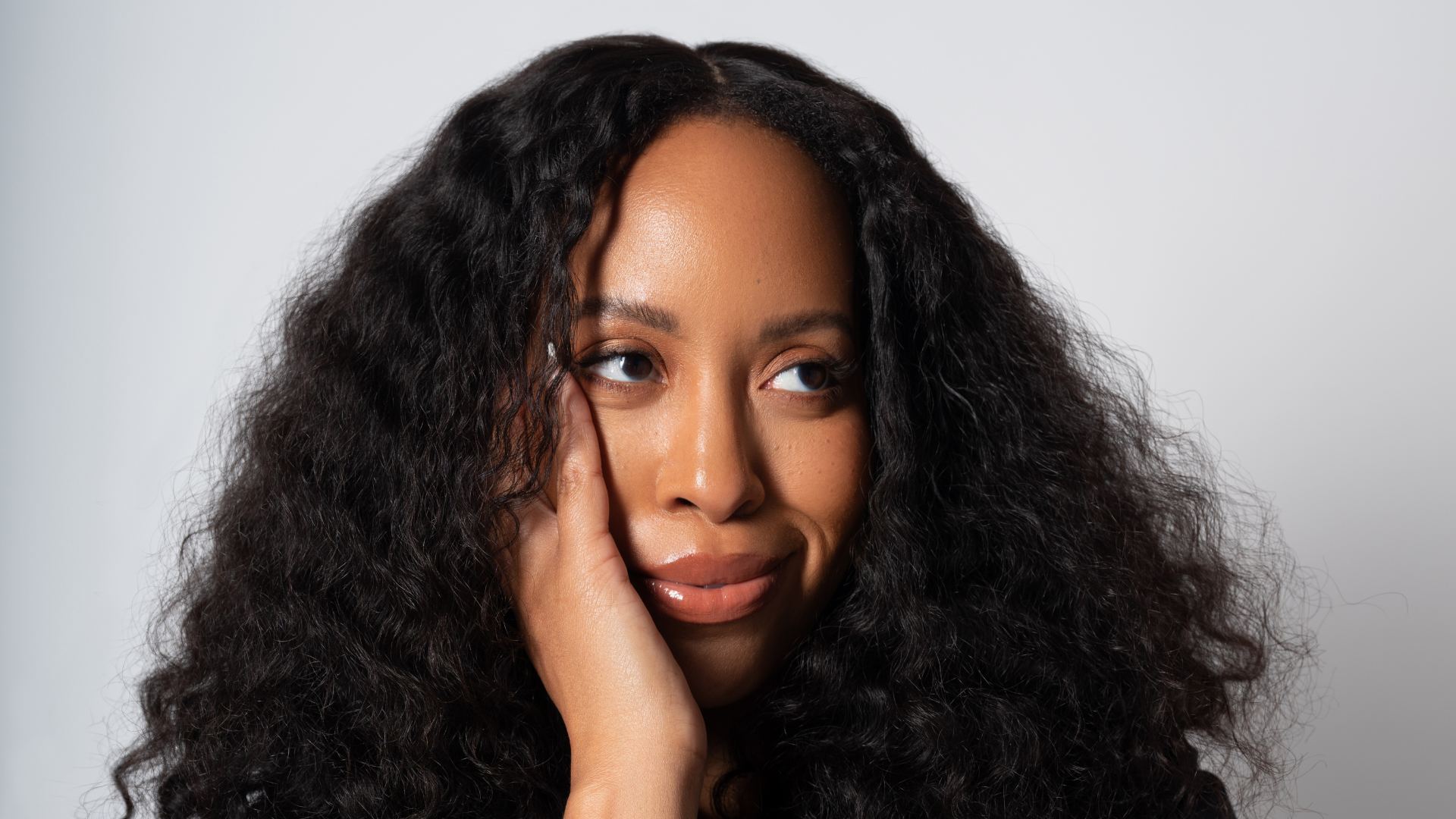
Writer Marjon Carlos has been obsessed with fashion since she was a creative kid growing up in Dallas, Texas. From a young age, Carlos found herself compelled to express herself through her personal style and utilizing pop culture as a means to mentally escape the suburbs that made up her life. She also always had a curiosity about life beyond her siloed hometown. By the time she got to high school, she was reading Vogue and standing behind her sartorial choices–while there she began a column on pop culture. She kept up her column writing in college at Brown University too immediately after high school. “I had a newspaper column,” she said over a Zoom call from her Brooklyn home. “I’m very opinionated and I wanted to figure out a way to get that out and to connect with people.” Carlos expressed that she was constantly looking for a culture she could resonate with during her adolescent years in Dallas.
Brown pushed her to critically look at fashion, but it also allowed her space to further explore her personal style. She says these formative years were some of her most experimental style-wise. Relocating to Rhode Island and being surrounded by classmates who had different taste levels than hers was inspiring to Carlos. These inspirations combined with her budding affinity for delving into the roots of what makes culture pop led her to New York City upon graduation to find a job in fashion. She was figuring out her place in the lexicon of the industry whilst working countless retail roles. “It was really, really hard,” Carlos said. “I was trying to find my way because it felt like if you weren’t the son or the daughter of somebody, it was going to be very, very difficult to kick down that door.“ Carlos kept pushing and after a few retail roles decided to go to graduate school at Columbia with a focus on African American studies. While there, the constant in her life that led her to where she is now: writing critically about culture. After graduating in 2009 she had stints at Net-A-Porter, Moda Operandi, and Saks’ digital site.
Her grit led her to work at Saint Heron, then she was offered a role at Vogue.com as a Senior Writer in 2015. While there she interviewed the likes of Cardi B, Gucci Mane, and more–she was pushing the cultural barometer in terms of what the publication was covering while there. She covered topics that were near and dear to her for quite some time, but then she left after a bit under a year. Many felt like she was leaving a dream role, and Carlos felt like the publication was turning into a content farm that she no longer wanted to keep up with–so she decided to bet on herself.
Going all in meant she’d no longer reach goals for companies, instead, she shifted and began the journey of freelance writing. Carlos also began letting her many interests drive her. “I think at a certain point I [told myself], ‘I really want to make sure that I am working towards my goals and my dreams, not just helping someone else’s dreams come true.’” Those interests include writing cover stories on talent like Doja Cat, but also creating the podcast “Your Favorite Auntie.”
Her creative prowess knows no bounds and her career is proof of that. Carlos’ ability to break down culture to make it digestible even for everyday people who aren’t on the cusp of fashion and reality television is what makes her a standout voice in the wider media industry. At the moment she’s focusing on “Your Favorite Auntie” which she launched as a platform to get her thoughts out about what she was engaging with during the pandemic. Initially, it was an Instagram Live series; where notables like Quinta Brunson and Brandon Blackwood were some of her first guests. In its newest season, Carlos interviews figures such as Christopher John Rogers and Evan Ross Katz and dissects their relationships with fashion and the backstories of their careers and she also digs into their relationships with money. The show provides a throughline that reaches back to her years in high school and college where she wrote about culture. It also gives her another outlet to create what she’d like her career to look like, something she presides herself on.
We recently caught up with Marjon Carlos to discuss her formative years in New York City, her core fashion memories and also the newest season of her Cash App-sponsored show “Your Favorite Auntie” and more.
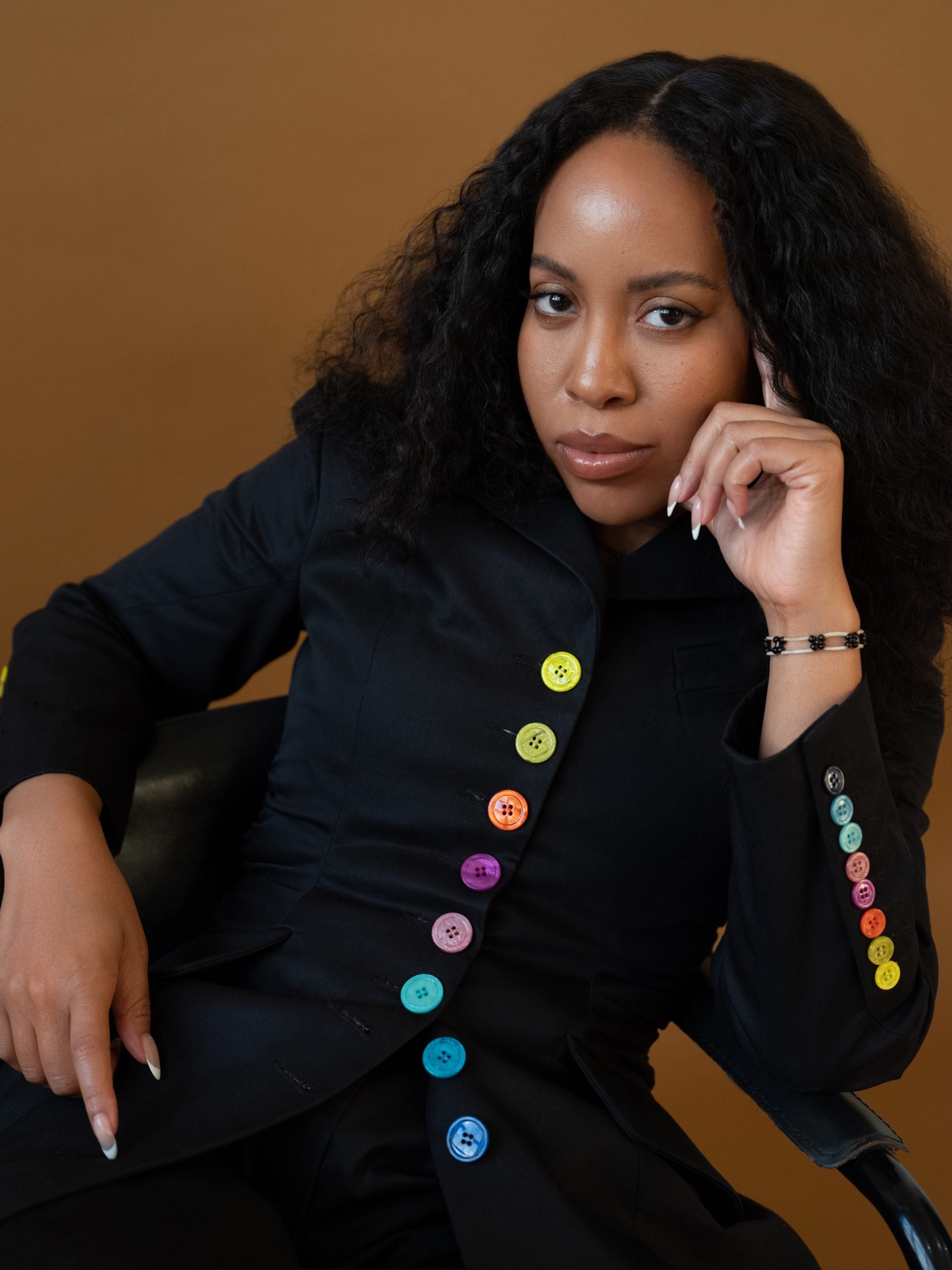
ESSENCE.com: When did your love of fashion begin?
Marjon Carlos: I was really young, I was in the South, and I think you’re really detached from fashion. Obviously, you’re at a distance, you’re not in New York, you’re not in LA. But my parents saw that I loved clothes. And so, there were all these little moments I think that just led me to where I am now. It is a surprise to no one that I worked in fashion today. When I was little, my mom sewed. And so, we would go to the sewing store and she would be like, okay, pick out a pattern, pick out your print and also your look. It could be a look for Easter Sunday, or it could be a look for a pageant, at church, or it could be a July Fourth barbecue look. She’s a really great seamstress, so she would always create little looks for me.
Were there any staple style moments for you as you got older?
I remember I would wear jeans with heels as a senior. I grew up in the aughts. So, when I graduated, it was ’01, so that was about to start, designer jeans were about to start. So, I started doing that and started wearing little heels because I saw Carrie Bradshaw doing that. I saw the girlies in Vogue doing that. So, I was like, “Oh, okay. I want to be like that.” It was very referential. It always had to be.
You also grew up in the suburbs, what was that like for your relationship with your creative side?
I think pop culture was such escapism. It was so transportive. I wanted to live in a place where you could walk. People don’t understand, you had to be able to drive. And if you didn’t have your license, if you didn’t have a car, you would be really stuck in places. So, before that, I would watch the WB, I would watch CW, I would look at all the magazines. My brothers and I were obsessed with movies. They would introduce me to all these different directors, and I was reading magazines incessantly, copiously. It was always something. And I liked that I could be somewhere else because I didn’t really like where I was.
I think later, when I was writing for publications, I was like, “This is what I always really wanted.” I just wanted to be a part of culture. I just wanted to create culture in those moments that I would always flip through pages and be like, “Oh my God, that’s so exciting that they put these two people together that maybe are very unexpected and you get these amazing results.”
As you got a little bit older, I’d say, senior year of high school and getting ready to move up to go to college, do you feel there was anything about fashion at that time frame that was speaking to you in a particular level?
When I went to [Brown University], I was like, “I’m going to wear whatever I want to wear.” I loved that time. I mean, I didn’t always get it right, but I definitely was like, “Oh my gosh, I want to wear a trucker hat. I want to wear Gwen Stefani’s L.A.M.B. collection. I want to go to New York and I want to shop in some stores.” Because that was another thing. It was like there was so much, you couldn’t get these clothes because there were no online shops like that.
I went to school with kids that were from New York, from LA or they were international. They had different styles, and they would put me onto different labels and brands. It was a time and you still got a chance to experiment with that. And then, there were kids who were going to school in Marc Jacobs straight off the runway. And I was like, “Oh, wow. Okay. All right.” So, I was exposed to a lot of different things and was allowed to experiment for the first time too.
When you were almost done with school, career-wise what do you feel like you were leaning towards during that period?
I think I definitely was still leaning towards fashion. I wanted to be a fashion journalist, but going to a school like Brown, at least at that time, fashion was really looked down upon. Having an interest in fashion wasn’t respected. I remember that because everyone was just like, I’m a serious academic. You had to be into theory, into race and politics and urban policy and international relations. It was very serious in that way. And so, fashion was really looked at as very shallow. And I remember just having to hide it, but also because people knew, they knew that I was obsessed with the media, fashion media and the fashion industry. I had to intellectualize it.
So, for my senior thesis, I wrote about the commodification of Black female beauty historically. It took a historical arc from Saartjie Baartman to Naomi Campbell to Black supermodels. And so, that was my way of saying fashion has a place in the academy. Fashion is definitely legitimate. And I went to New York after I graduated trying to get a job in fashion. And it was really, really hard. I mean, I really was working retail. I’ve worked at every store, I really did. I worked at every store high, low, and I was trying to find my way in because it felt like if you weren’t the son or the daughter of somebody, it was going to be very, very difficult to kick down that door. And I just worked my way through it that way.
I feel like every Black person in fashion has their story of climbing the ladder. Sometimes it takes just being here in New York City. I think that that’s sometimes the toughest part for some people who aspire. It’s serendipity sometimes I feel.
Making your own opportunities too. I think as Black women especially, no one’s going to vouch for you as more than you are. And I definitely had to learn that the hard way, and because I don’t know, what I got even later in my career, this is a few years before editors became fashion influencers, but it was really considered very gauche just to be self-promote or to even acknowledge the work that you’ve done or accomplished. So, I’ve always realized that for black women and as [a] Black woman, you have to just carve that lane yourself and to go for it because literally no one else will do that for you.
What career highlights or moments stick out to you?
I definitely think that me graduating from grad school [at Columbia] was really a big moment. I got my degree in African-American studies and I was really trying to find a way to combine gender studies and African-American studies and fashion and it just never presented itself. And then, it finally did. And it all coalesced at a certain point because I was always like, “How am I going to combine these three variables?” But I always looked at fashion in a very sociopolitical way. So, I definitely believe that that moment was really formative and that experience was really formative for me because it changed my perspective and my worldview.
Then, I think working at Vogue was obviously a very big turning point for me, and it was such an interesting moment because the internet was democratizing things. So, it was almost possible for someone like me to write at a publication like that, and that hadn’t really been the case previously. So, a lot of it was an opportunity for me to just write about whatever I wanted to write about. So, it was cool to interview Gucci Mane or Tracee Ellis Ross or Serena Williams or Ava DuVernay, and I really did a lot there because the opportunities were there.
I also definitely appreciate all of my freelance stories after that. I mean, when I got my first Elle cover and it was the September issue and it was Cardi B, I think that was a really big moment for me. I had struggled for a really long time to figure out what I was going to do. I had fallen in and out of love with writing. And then, this was another moment for me to prove to myself that I could do this.
How did your podcast “Your Favorite Auntie” get its start?
That was really fun. I had no idea what it was going to be. I think a lot of people were going live during the pandemic, and I just would pop into people’s lives and I’d be like, I can’t believe someone is just talking to other people who were commenting on the other side of their phone. The whole format seemed crazy to me. But then, I had a lot of people asking me questions during the aftermath of George Floyd’s murder, and they ran the gamut from how to deal with the impact of racial violence while at work, while doing my job to interracially dating while we’re in the midst of a racial reckoning like this. So, I was like, “Let me just go live and just see what it does.” I didn’t know how to do it. I didn’t know what entailed lighting. I didn’t know it entailed a lot of things, but then, you just learn.
What can you tell me about this new chapter for the podcast which features sponsorship from Cash App?
I felt like there was a lot of alignment there because I feel like they’ve worked with a lot of young creatives who are trying to find a platform and trying to subsidize their passion. And so, they were willing to step in and be their partner. And they’ve really given me creative control. They really don’t have, they’re not trying to tell me what to say or what not to do, which is really a great reminder that it’s you that they want and it’s you that they want to align with.
And they’re a great company in the sense that they are really working with people around financial literacy. And so, we talk a little bit about that on the show as well and about leveling up your money and all that stuff, which is always an ongoing journey.
What are some things listeners can expect for this new season?
The first person I interviewed was Christopher John Rogers. He’s one of my best friends and just an icon, so it was really great to have him on. It was good for a friend to be on first because I was like, “Okay, if we have any kinks, so we need to figure it out, he’s not going to judge me.” [It] was really nice. We talked about the fashion world. I really feel like it’s a great way of unveiling the fashion world because there are a lot of fashion girlies in it, and they’re really giving us their backstories on their careers and how they came up.
Also [people] giving their opinions on culture, pop culture at large. We’re talking about race, we’re talking about politics, relationships, dating. The meat of the show is of course advice, life advice, and offering that advice you can only get from your auntie. I just interviewed my aunties last night for it.
How do you feel about this notion of freedom in regard to having the choice to do the work you’re doing now? And do you have thoughts on not seeking validation and just being free to make these career decisions as a Black woman?
I think it’s really freeing. It’s very cathartic to be able to be in a position where you can make certain types of decisions for your career and for your path, and also definitely to redefine what success looks like for you. I think that that’s a very big path and a big journey. I think I definitely still have a challenge with that, just letting go of certain things and certain expectations and creating a new way of looking at myself and the work that I’ve done and I’ve accomplished.
I think that when you’re young, you should say yes to everything. Like you’re saying, you never know when an opportunity is going to arise, so you should definitely be saying yes to everything. And then, I think when you get to a certain point, you feel like, ‘Okay, I got to be a little more intentional about what I want to do and where I want to put my time and my energy.’ And if some place is not working for you, I am definitely someone who believes in walking away and starting over.
I had a joke. I was like, I always blow up my life every couple of years because I’ll be like, ‘This isn’t working for me. This is no longer serving me.’ And I think definitely as Black women, and I’m going to say it again, you have to make your own opportunities. So, if you want something, you have to go and you have to get it, and you have to make sure you’re in a certain room. You have to make sure you’re experiencing a certain event or you’re taking advantage of an assignment or something like that. You have to do that for yourself. I think that’s really, really important.
You can tune into Marjon Carlos’ “Your Favorite Auntie” on YouTube and Spotify.

